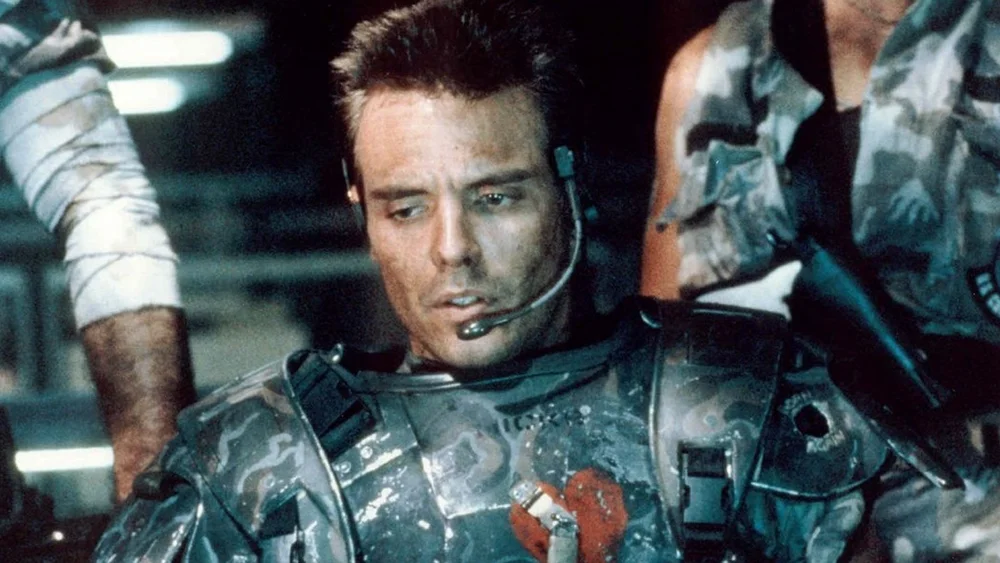
In the time between Terminator 2: Judgement Day and Titanic, James Cameron was developing a Spider-Man movie. This is a well-known fact and Cameron called the project “the greatest movie I never made.”
Early on in the development of the film, Cameron was looking at setting the story around an older version of Peter Parker/Spider-Man, and the first actor he considered for the role was Michael Biehn, who he had worked with on Terminator and Aliens. Biehn was 30 years old at the time and he would have been the oldest actor to have been cast in the role of Spider-Man.
It would have been really interesting to see Biehn take on the role of Spider-Man! But, it was just never meant to be. As Cameron continued to develop the movie, he shifted the focus on a much younger 17-year-old version of the character, and at that point, the filmmaker wanted Leonardo DiCaprio in the role.
DiCaprio said in the past that he and Cameron only ever had "a couple of chats" about the movie, and the movie never came to fruition. When previously talking about film Cameron said:
“I think it would’ve been very different. I didn’t make a move without asking [Stan Lee] permission. The first thing you’ve got to get your mind around, is it’s not Spider-Man. He goes by Spider-Man, but he’s not Spider-Man. He’s Spider-Kid. He’s Spider-High-School-Kid. He’s kind of geeky and nobody notices him and he’s socially unpopular and all that stuff.”
Cameron went on to explain that Spider-Man is “a great metaphor,” with his superpowers representing “that untapped reservoir of potential that people have that they don’t recognize in themselves. And it was also in my mind a metaphor for puberty and all the changes to your body, your anxieties about society, about society’s expectations, your relationships with your gender of choice that you’re attracted to, all those things.”
Cameron also came up with the concept to change Spider-Man’s web shooters from technology that Peter Parker invents to a biological power he gains after getting bitten by the radioactive spider. He said: “Going with the biological web shooters as being part of his biological adaptation to the radioactive spider bite made sense to me.” That’s an idea that Sam Raimi rolled with in his Spider-Man movies. Cameron went onto share more of his vision of Spider-Man saying:
“I wanted to make something that had a kind of gritty reality to it. Superheroes in general always came off as kind of fanciful to me, and I wanted to do something that would have been more in the vein of Terminator and Aliens, that you buy into the reality right away. So you’re in a real world, you’re not in some mythical Gotham City. Or Superman and the Daily Planet and all that sort of thing, where it always felt very kind of metaphorical and fairytale-like. I wanted it to be: It’s New York. It’s now. A guy gets bitten by a spider. He turns into this kid with these powers and he has this fantasy of being Spider-Man, and he makes this suit and it’s terrible, and then he has to improve the suit, and his big problem is the damn suit. Things like that. I wanted to ground it in reality and ground it in universal human experience. I think it would have been a fun film to make.”
Cameron never got to make his Spider-Man movie because the low-budget studio Cannon Films, who owned licked up the right for Cameron, ended up going bankrupt before he could get the movie going.
I would have loved to see Cameron’s Spider-Man movie! It would have been pretty wild, though, if it would have happened and Biehn would have ended up as Spider-Man.
Post a Comment